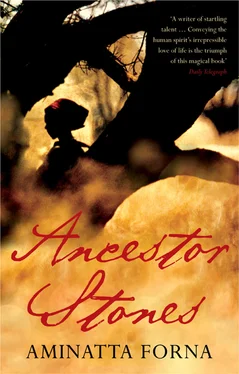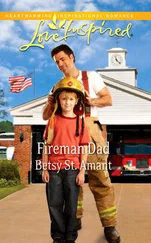People with bad thoughts were always taking my luck away. I was still a girl, I was gutting fish — slitting open the bellies with a sharp knife, pulling the gleaming dark mass from within. The fish were fresh, some still alive. Under the table cats darted in and out of our legs, snatching at the pieces that fell. One moment I was concentrating on my work, the next I felt a sharp pain in my foot that made me cry out loud. A dirty white cat stared up at me with cold blue eyes. Somebody tried to shoo it away. The cat clung to the ground with its claws. We waved our arms. It hissed back at us. One of the women, braver than the rest, threw a knife which clattered on to the ground. The cat jumped up on to the wall of the house and away. Later the same women would not look me in the face. They all knew it, you see. When a cat bites you, it’s a sure sign somebody out there is trying to change your luck for the worse.
When I was a child I was always being blamed, blamed for everything. It was easy to make me the scapegoat because I had nobody to defend me. So in time I found ways to make my own luck.
I remember a time of happiness.
On the first day of fishing the women gathered with their nets at dawn on the edge of the village. Then there was not one among them who dared to begin without her. Yet she took her time, always. Dressed with great care. Oiled her scalp between the partings of her hair. A bracelet dangled from her wrists, around her throat a necklace of red and white beads. And when she was ready she would call for me to fetch her fishing net down from the hook on the wall. Then she walked, with deliberate steps, down past the houses towards the stream. Never breaking her stride. When they saw her they ceased their chatter and followed her.
In those days she was my father’s favourite wife. She alone. If anyone tells you any different, they’re lying. This was the reason they waited for her. They knew she had my father’s ear. Whatever medicine the Tuntun had placed around the river would have been lifted. The day she collected her net and walked to the river — for all the women in the village that was the most assured sign.
At the waterside she tucked the trailing cloth of her lappa into the waist and shook out her net. I ran forward and picked up the end — so it didn’t drag across the ground. I walked behind her as she waded in. When the water reached her waist she gripped the bamboo hoop firmly in both hands. I let go of the tail, and watched it swim after her.
The way she walked — no concession to the rising water. The cloth around her waist swelled with air, and for a moment dragged behind her like a giant snail shell. Her breasts bobbed on the surface and her movements were as fluid as the water itself. Below the surface the outline of her body shifted into thousands of shapes. For a brief moment the sun caught her profile. She didn’t turn once. It was as though she were entirely alone.
The shallows turned to churning mud in the rush that followed. The women slipped and scrambled down the bank into the water like buffalo on a collapsing cliff. They jostled for the prize spots close to the bank or else midstream, where the weed grew densely along a sand spit and the fish liked to conceal themselves in the shadows. The slow ones were left to drag the bottom of the river, scooping water and fish into the open mouths of their nets.
Almost out of sight my mother walked on, between the banks of mangrove, heedless of the presence of water snakes and crabs. The boughs of the trees growing on opposite banks formed a bower over her head.
She kept flowers in her house. My father teased her for it, but she loved them, even the yellow blooms from the coco yams and the pale orange okra blossom that grew in everybody’s garden. She picked them and put them in water. He built her a house opposite his own; he only had to look across to see her every day. That was where I lived as a small child with my two elder brothers. When he visited he insisted that she shared his food with him. Sat down next to him, like an equal, and ate from the same dish.
I remember the sound of my father clapping his hands loudly and me running quickly to stand in front of them both. I bowed my head. ‘Eh bo! Will you look at this child. Taller with every day. How about a song for us? What songs do you know?’ My father was sitting with his legs crossed, wearing a loose-fitting green gown with a trail of embroidery down the front.
I was nervous and I felt my face growing big and hot. I thrust out my chest and pushed my shoulders so far back I felt my shoulder blades touch each other behind my back. I began a song we children sang down at the fields when we were scaring birds from the crops. We would sing across to each other, high up on our platforms above the fields. It was a song known to anyone who had ever been a child.
My father clapped, picking up the rhythm, and joined in with the reply. I remember how surprised I was at that. It was strange to think of my own father as a child and that once there were people who could tell him what to do.
And yet I noticed things about my father. Outside he had a stern face, which did not care to smile. He built the mosque and was inside it five times every day. He walked quickly. And people hurried around him, offering greetings, showing respect. A sober man. Yet I saw my mother do things nobody else did. He used to lie with his feet in her lap while she massaged them, pulling at his toes gently one by one. And I saw her hit him with a fan! Across his face, as though she were slapping him with the back of her hand, but using her fan instead. She touched him only lightly. Still, I had never seen anybody touch my father. For a long time I couldn’t remember what happened next. Maybe I had made myself forget. And then I realised the reason I couldn’t remember was that nothing happened. She hit him with her fan. Laughter. The conversation between them carried on.
That evening my mother sang the next part. Where my father’s voice was heavy and rich, like the smell of the best coffee beans, my mother’s was high and clear as an empty sky.
Then it was over. My father laughed and clapped again. He called me to sit by his side while he ate. I never could cross my legs properly, I don’t know why. My thighs ached and I was unable to take my eyes off his plate. Guineafowl stewed with honey and whole lemons. It was not a dish the other wives cooked. I hadn’t eaten. My stomach groaned loudly. My father laughed and his body shook. He held out a morsel of guineafowl in his fingers, and I reached up to take it from him. Then I remembered my mother. I hesitated. Hunger had prevented me thinking properly. Perhaps my father would consider me greedy. I glanced up at my mother, saw her slight smile, the way she inclined her head towards me. And I knew I had done well.
That day, or maybe it was another time, my mother fetched the small seven-stringed guitar she owned. Lately, since I have been thinking about her, I have wondered where she learned to play such a thing. I have never seen a woman play one before or since, only the travelling players on market days.
She sang a song for my father. It was a Madingo song about love. Not a love song. You couldn’t really call it that. I knew it off by heart:
Quarrels end,
But words once uttered never die.
Lovers part,
But love lives on.
Marriages end,
But hearts survive.
You leave your mother’s breast,
For your father’s side,
And why should this be so?
Because love forever changes.
When from her father’s house,
A girl goes to a man,
We see the same again,
Love’s constant changes.
And when into the night she slips away,
To her lover’s arms,
The same rule applies, my friend:
Читать дальше












